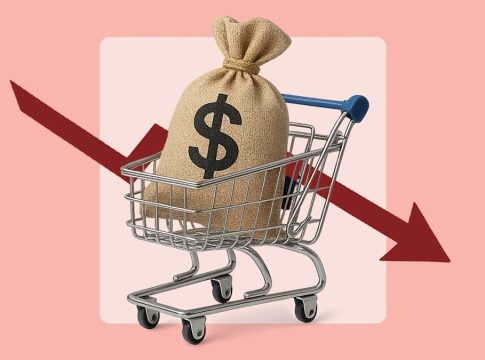The State of the U.S. Economy: A Clear Look at Consumer Sentiment
As we navigate these uncertain times, many Americans are feeling uneasy about the state of the U.S. economy. Recent findings from Bankrate’s Consumer Sentiment Survey indicate that 56% of respondents believe the economy is headed in the wrong direction. This sentiment has barely shifted since before the November 2024 presidential elections, where 55% felt similarly.
Tariffs: A Growing Concern
One major point of contention is the Trump administration’s approach to tariffs. Over 65% of Americans feel that increased tariffs—notably on imported goods—could worsen their personal finances. This concern spans across demographics, with both Republicans and Democrats largely agreeing that tariffs could create more financial strain rather than relief.
- What’s Driving the Tariff Debate?
- Higher import taxes have already cost the average consumer approximately $2,500 annually. For many, especially post-pandemic, these extra costs are hard to absorb. A majority of Americans (97%) report having noticed rising prices, particularly in essential categories like groceries and dining out.
Inflation: Slow but Present
While inflation is showing signs of gradual decline, it remains a significant concern for consumers. The Consumer Price Index (CPI) indicates that prices have risen by 2.4% in the last year. This inflation rate may not seem alarming, but for many Americans, the immediate effects are being felt in daily life.
- Price Increases Across Categories:
- Groceries: 91% reported higher prices.
- Dining Out: 75% noticed increases.
- Gasoline: 59% experienced rising costs.
Who Feels What?
Unsurprisingly, feelings towards the economy often depend on political leanings. Republicans are notably more optimistic, with 58% believing the economy is on the right path, compared to just 7% of Democrats. This partisanship loosens slightly in views on tariffs, where up to 90% of Democrats fear they will negatively impact their finances.
A Generational Divide
Younger Americans are particularly pessimistic about the economy. Among Great Generation cohorts:
- Gen Z (ages 18-28): 63% view the economy negatively.
- Millennials (ages 29-44): 66% share this sentiment.
Conversely, older generations, like Baby Boomers (61-79), have shown a slight upward shift in optimism.
Take Control of Your Finances
With uncertainty looming, now is the time to reassess your financial situation.
Practical Steps to Consider
-
Assess Your Savings:
- How prepared are you for unexpected expenses? Aim to have at least three to six months of expenses saved in an emergency fund.
-
Budget Wisely:
- Differentiate between essential (nondiscretionary) and non-essential (discretionary) expenses. This clarity will help you identify areas to cut back if necessary.
- Maximize Your Savings:
- Research high-yield savings accounts. Today, rates can be up to 4.3%, significantly outpacing the national average of 0.48%.
Final Thoughts
Economic cycles are natural, and while it’s easy to feel overwhelmed, having a solid financial plan can provide peace of mind. Ensuring you’re prepared for economic shifts will help you navigate these unpredictable times effectively. Take a moment today to reevaluate your financial health—your future self will thank you.

Writes about personal finance, side hustles, gadgets, and tech innovation.
Bio: Priya specializes in making complex financial and tech topics easy to digest, with experience in fintech and consumer reviews.

